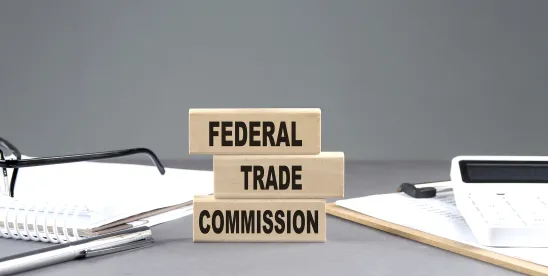On Aug. 14, 2024, the Federal Trade Commission (FTC) announced the latest federal rule pertaining to customer reviews, after almost two years of administrative rulemaking and a unanimous approval of the final rule from its commissioners. In so doing, the FTC made clear that it does not agree with the adage “fake it ‘till you make it” when it comes to customer reviews.
The FTC pursued businesses that engaged in misleading conduct surrounding reviews and testimonials before finalizing this new rule under the general principles of the Truth-in-Advertising Principles of the FTC Act – namely, that all advertising must be truthful, not misleading, and substantiated. The FTC has also published its Guides Concerning the Use of Endorsements and Testimonials in Advertising, which are not independently enforceable but serve to give advertisers and consumers an indication of how the FTC may enforce the law. With the new rule, the FTC can bring action pursuant to the specific rules issued, as opposed to the more general FTC Act provisions.
The FTC’s New Rule Banning Fake and Other Misleading Reviews
The rule prohibits the following:
- Fake or False Consumer Reviews, Consumer Testimonials, and Celebrity Testimonials. The rule prohibits the use of reviews and testimonials that are from someone who does not exist, such as AI-generated fake reviews, or those who did not have actual experience with the business. This prohibits businesses from disseminating, creating, selling, buying, or otherwise procuring such reviews or testimonials when the business knew or should have known that the reviews or testimonials were fake or false.
- Buying Positive or Negative Reviews. The rule prohibits businesses from providing compensation or other incentives conditioned on writing consumer reviews (positive or negative). It clarifies that the conditional nature of the compensation or incentive offer may be expressly or implicitly conveyed.
- Insider Reviews and Consumer Testimonials. The rule prohibits certain reviews and testimonials written by company insiders that fail to clearly and conspicuously disclose the giver’s material connection to the business. This is a continuation of the FTC’s emphasis in recent years on the obligation to disclose material connections. Material connections are any connection of a personal, financial, or business nature between the reviewer and the company marketing the product that is not immediately apparent to the consumer. The FTC has repeatedly taken action in this area, especially for online and social media advertising.
- Company-Controlled Review Websites. The rule prohibits a business from misrepresenting that a website or entity it controls provides independent reviews or opinions about a category of products or services, including its own.
- Review Suppression. The rule prohibits a business from using unfounded or groundless legal threats, physical threats, intimidation, or certain false public accusations to prevent or remove a negative consumer review. The rule also bars a business from misrepresenting that the reviews on a review portion of its website represent all or most of the reviews submitted when other reviews have been suppressed based upon their ratings or negative sentiment.
- Misuse of Fake Social Media Indicators. The rule prohibits anyone from selling or buying fake indicators of social media influence, such as followers or views generated by a bot or a hijacked account. This prohibition is limited to situations in which the buyer knew or should have known that the indicators were fake and misrepresent the buyer’s influence or importance for a commercial purpose.
Notable Consequences for Violating the Rule
As the FTC expressly recognized in its press release for the rule, the Supreme Court’s 2021 decision in AMG Capital Management LLC v. FTC, 141 S. Ct. 1341 has “hindered” the agency’s “ability to seek monetary relief for consumers under the FTC Act.” The agency can get around the AMG limitations by promulgating “rules” related to deceptive or unfair trade practices. Violations of those rules trigger the FTC’s ability to seek financial relief under Section 19 of the FTC Act. This latest rule therefore allows the FTC to seek civil penalties and monetary remedies against those engaging in false and misleading practices relating to online reviews. Specifically, the rule empowers the FTC to impose penalties of up to $51,744 per rule violation, along with other relief, including consumer redress, conduct restraints, broad oversight authority, and other remedial measures.
Takeaways
In a cheeky blog post titled, “We’ll pay you to give our new rule a good review,” a long-time FTC representative and blogger wrote about the FTC’s intentions moving forward. “One last rhetorical question. Is this new rule going to sit on the proverbial bookshelf and collect dust? You better believe it won’t.”
The new rule took effect on Oct. 14, 2024. Companies that utilize testimonials and consumer reviews should consider reevaluating their contracts (such as those with influencers and affiliates), promotional material (e.g., solicitations for reviews), and other current marketing practices. Companies should also consider conducting trainings to enhance compliance.





 />i
/>i

